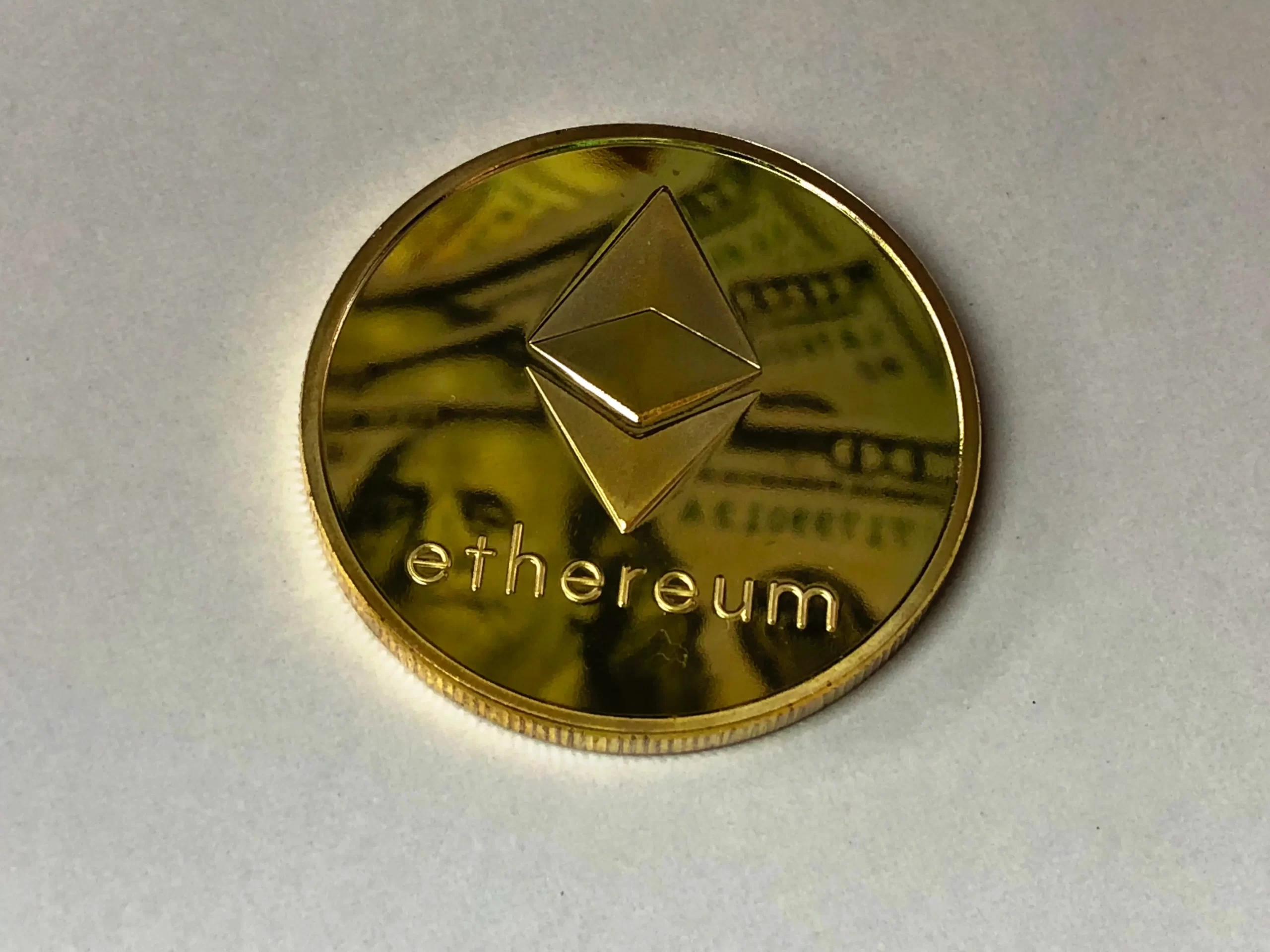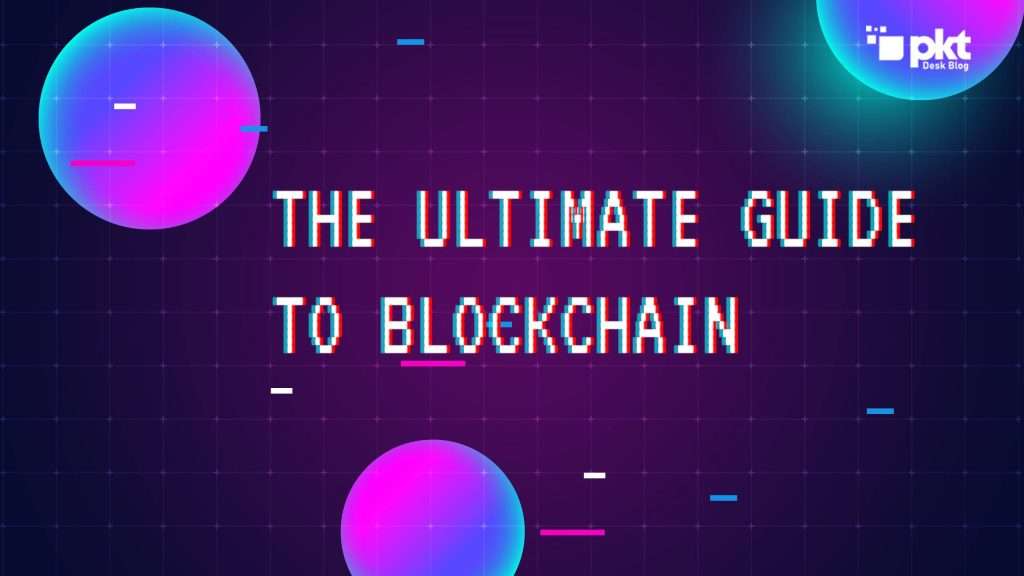Have you ever heard of blockchain technology? It’s a term that’s been buzzing around the tech world for quite some time now. But what exactly is a blockchain?
We’ve got you covered if you’re curious about this fascinating technology! A blockchain is a decentralized digital ledger that records transactions in a secure and immutable way. This means the information stored in a blockchain cannot be altered or deleted, making it incredibly fast and transparent.
In this article, we’ll dive deep into the blockchain world, how it works, and its many potential applications.
And who better to guide us through this complex subject than Andreas Antonopoulos, a world-renowned expert on blockchain and cryptocurrency?
So, without any further ado, let’s explore the revolutionary world of blockchain technology with one of the foremost experts in the field.
What is Blockchain Technology? In Simple Words
As we mentioned earlier, a blockchain serves as a digital ledger for securely and transparently recording transactions. It is a database that contains transaction data and is distributed across a network of computers. This means that we can all access the same ledger, regardless of our location on the web.
Each block in the chain contains a set of transactions, and each block is linked to the previous block in the chain, forming a chain of blocks. This linking process creates a secure and unalterable record of all transactions on the blockchain.

The security of the blockchain comes from the fact that each block is encrypted using complex algorithms that make it virtually impossible to hack or alter the data. Additionally, because the blockchain is distributed across a network of computers, there is no central point of failure that could compromise the ledger’s integrity.
Many experts believe that blockchain technology will play a significant role in the future of finance, technology, and other industries. Blockchains are used for various purposes, such as recording financial transactions, tracking asset ownership, and verifying digital documents’ authenticity. They could revolutionize how we conduct transactions and keep records.
What is Blockchain Example
A famous example of blockchain technology is the cryptocurrency Bitcoin. Bitcoin operates on a blockchain, which is a public ledger that records all Bitcoin transactions.

Every time a Bitcoin transaction occurs, it is added to the blockchain as a new block. Each block contains the transaction details, such as the sender, the recipient, and the amount, as well as a unique digital signature that verifies the transaction’s authenticity.
Another example of blockchain is the platform Ethereum, which allows developers to build decentralized applications and execute smart contracts.

Smart contracts are self-executing contracts with the terms of the agreement written directly into code. They run on the blockchain and can facilitate the exchange of assets, money, or data without intermediaries like banks or lawyers.
Blockchain technology has many potential applications beyond cryptocurrencies, including supply chain management, voting systems, identity verification, etc. Its decentralized nature and immutability make it an attractive option for industries that require transparency, security, and accountability.
How Does Blockchain Work
Block: A block is a collection of data bundled and added to the blockchain. Each block contains a unique ” hash ” code that identifies it.
Blockchain: A blockchain is a collection of blocks that are linked together in chronological order. This creates a “chain” of blocks, hence the name.
Nodes: Nodes are individual computers that are connected to the blockchain network. Each node has a copy of the blockchain ledger and validates transactions.
Transaction: A transaction is an exchange of data between two parties. In the case of blockchain, this data could be anything from cryptocurrency to medical records.
Now that we understand the basics, let’s dive into how it works:
- Distributed Ledger Technology: The blockchain is a distributed ledger technology (DLT), meaning no central authority controls the database. Instead, the database is distributed across a network of computers, and each computer holds a copy of the database. This makes the blockchain highly resilient, as there is no single point of failure.
- Blocks: The blockchain is composed of blocks linked together in a chronological chain. Each block contains a set of transactions, and once a block is added to the blockchain, it cannot be modified.
- Mining: Adding a block to the blockchain requires a process called mining. Miners are individuals or organizations that use powerful computers to solve complex mathematical problems. The first miner to solve the problem is rewarded with a certain number of cryptocurrency tokens, which incentivizes miners to participate in the network.
- Consensus: Before a block can be added to the blockchain, and the network must reach a consensus on its validity. This means that a majority of the nodes on the network must agree that the block is valid and that the transactions within it are legitimate.
- Cryptography: Cryptography is used to secure and protect the blockchain from fraudulent activities. Each block is linked to the previous block in the chain using a cryptographic hash function. This makes altering or tampering with the blockchain virtually impossible without being detected.
- Smart Contracts: Smart contracts are self-executing contracts with the terms of the agreement between buyer and seller being directly written into lines of code. Smart contracts allow for the secure and transparent execution of transactions without intermediaries.
Advantages of Blockchain
- Decentralization: The decentralized nature of the blockchain makes it highly resilient and resistant to censorship or manipulation.
- Security: Cryptography ensures that the blockchain is secure and virtually tamper-proof.
- Transparency: The transparent nature of the blockchain allows anyone to view and verify transactions, which promotes trust and accountability.
- Efficiency: Blockchain technology enables fast and efficient transactions without intermediaries.
- Smart Contracts: Smart contracts allow for the secure and transparent execution of transactions without intermediaries.
What is Blockchain Used For
Blockchain technology has a wide range of applications across various industries. Some of the most common uses of blockchain technology are:
- Cryptocurrency Transactions: Blockchain is primarily known for its use in creating and tracking cryptocurrencies such as Bitcoin, Ethereum, and others. The decentralized nature of the blockchain network ensures that transactions are secure, transparent, and free from third-party interference.
- Supply Chain Management: Using blockchain technology, it is possible to track goods through the supply chain immutable and transparently. This helps to reduce the risk of fraud, counterfeiting, and theft and improves overall supply chain efficiency.
- Identity Verification: Blockchain can be used to create a secure and decentralized system for identity verification, where personal information is stored on the blockchain and can only be accessed with the user’s permission.
- Smart Contracts: Blockchain technology can be used to create self-executing smart contracts, which are programmable agreements that automatically execute when certain conditions are met. This can automate various business processes, reduce the need for intermediaries, and improve efficiency.
- Voting Systems: By using blockchain, it is possible to create secure and transparent voting systems where each vote is recorded on the blockchain and can be verified independently. This can help to reduce the risk of fraud and improve the overall integrity of the voting process.
- Healthcare Records: With blockchain, medical records can be safely stored and shared, with patients having full control over their data and granting access permissions to healthcare providers. This can help to improve the quality of care, reduce errors, and increase efficiency in the healthcare system.
- Digital Identity: Blockchain can be used to create a decentralized system for managing digital identities, where users have control over their data and can easily manage their online presence. This can reduce the risk of identity theft and increase privacy for users.
- Real Estate Transactions: With blockchain technology, real estate transactions can be managed securely and transparently, where each transaction is recorded and verified independently. This can help to reduce the risk of fraud and improve the efficiency of the real estate market.
- Gaming and Digital Assets: Players can use blockchain to manage their in-game assets in a secure and decentralized way, allowing them to transfer assets between games or even sell them. This can help to create new business models for gaming and increase the value of digital assets.
- Energy Trading: By utilizing blockchain technology, individuals can create peer-to-peer energy trading platforms to trade excess energy generated by their solar panels. This can create a more decentralized and efficient energy market, reduce reliance on centralized utilities, and promote the adoption of renewable energy sources.
Final Thoughts
Blockchain is a revolutionary technology transforming industries and changing how we interact with data. It is a decentralized and transparent ledger that stores information in blocks that are linked together through cryptography. This makes it virtually impossible to tamper with the data, ensuring its security and accuracy.
Blockchain has already shown its potential in various fields such as finance, healthcare, supply chain management, etc. It can streamline processes, reduce costs, increase efficiency, and improve security.
As businesses and organizations adopt blockchain technology, it is becoming increasingly important for individuals to understand what it is and how it works. Whether you are a business owner, investor, or just someone interested in technology, blockchain offers something.

